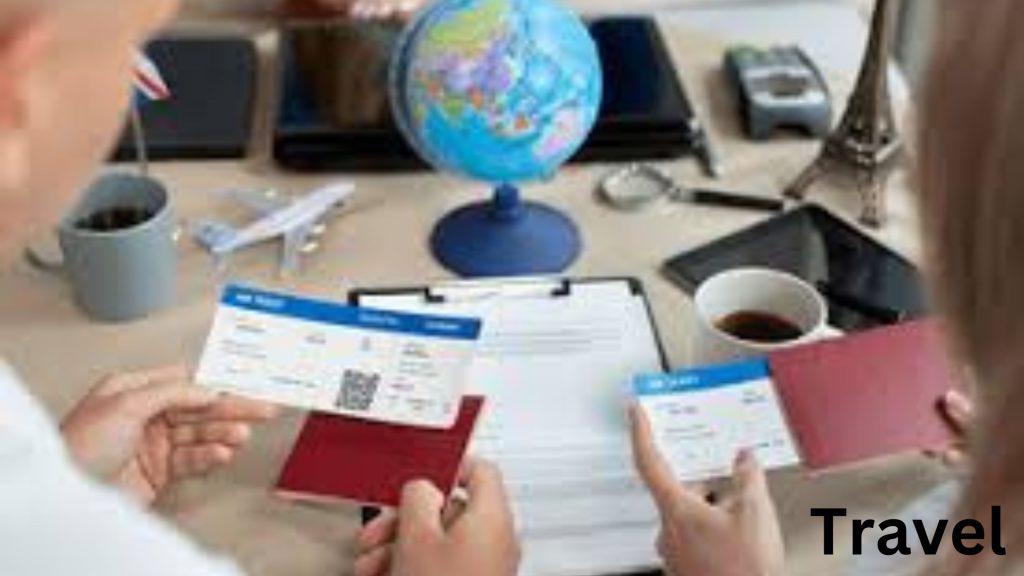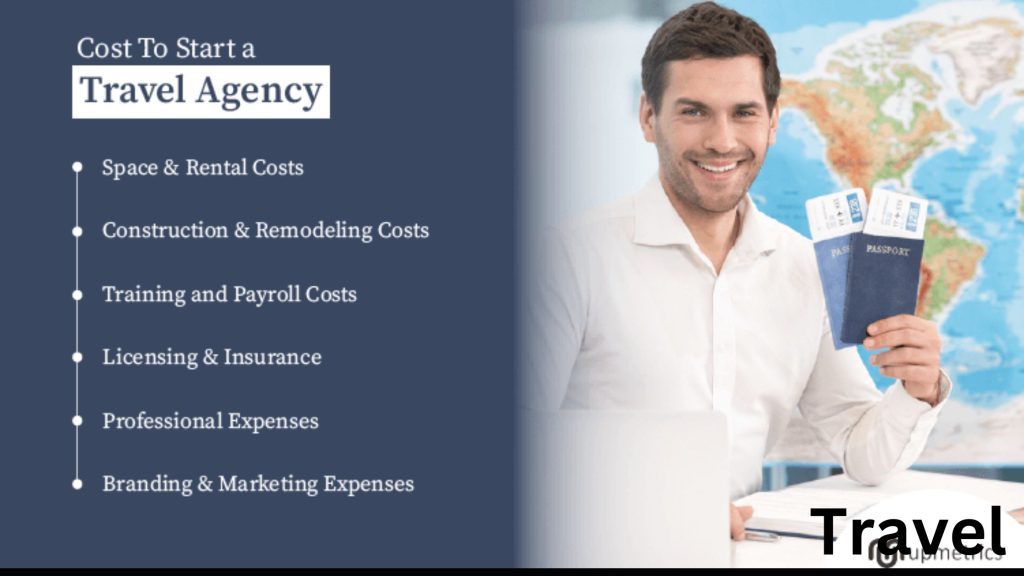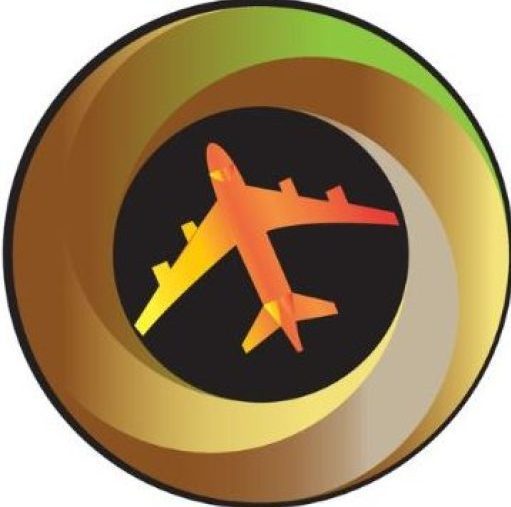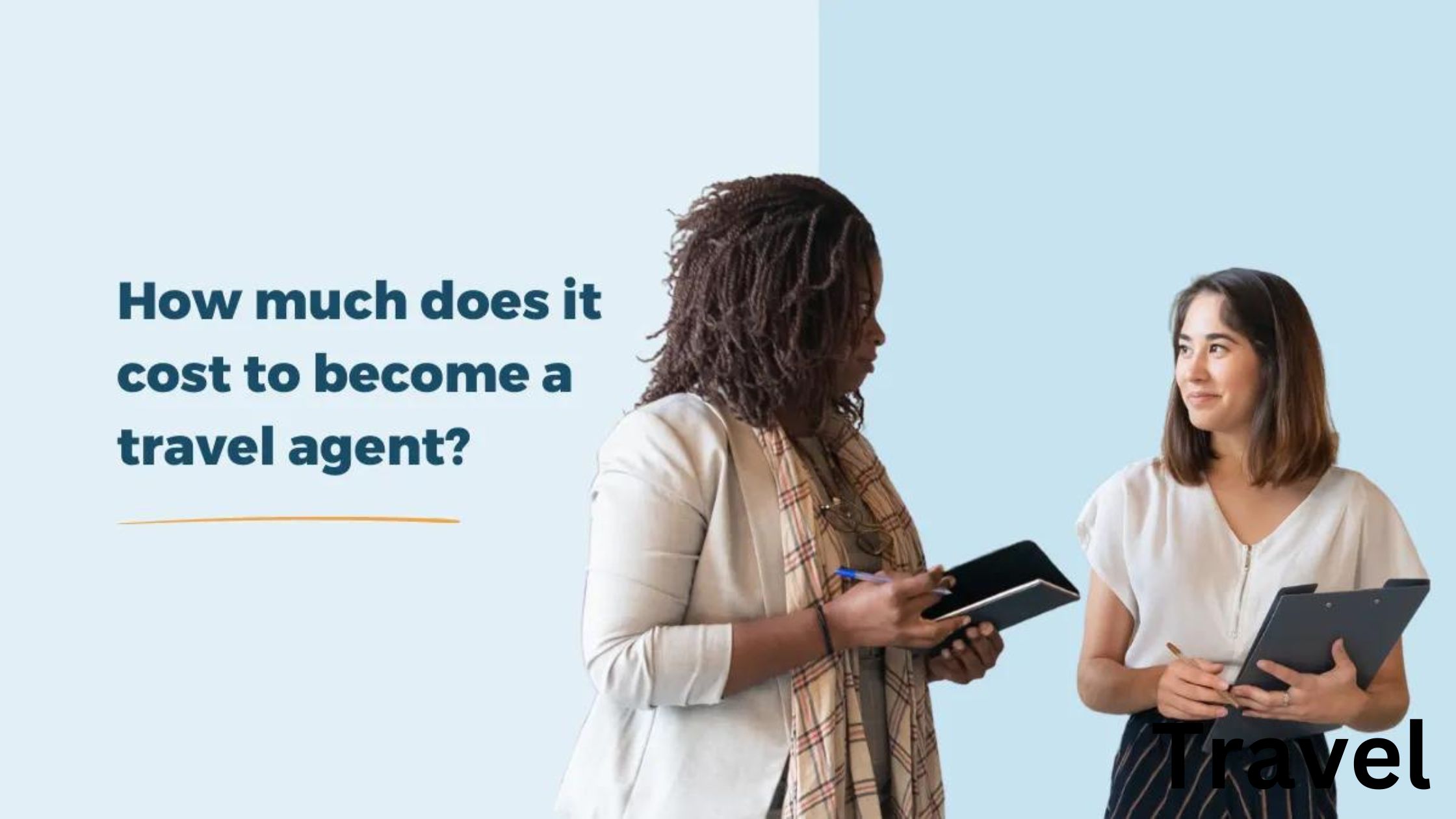How Much Does It Cost to Become a Travel Agent varies?, typically ranging from $500 to $10,000. This includes the price for education, licensing, and startup expenses.
Starting a career as a travel agent presents a blend of exciting possibilities and meticulous planning. Prospective agents must consider the cost of formal training, which may encompass online or in-person courses. The proper certifications enhance credibility and expertise, yet they come with fees and How Much Does It Cost to Become a Travel Agent?
Networking and joining professional organizations also play a crucial role in the industry, involving membership dues. Agents must set aside funds for marketing and promotional materials to attract clientele. For those opting to open their own agency, startup costs like office space, technology, and insurance are substantial factors. With a thoughtful budget and a strategic approach, the journey to becoming a travel agent can become a fulfilling professional path.
Travel Agent Career Aspirations
Travel Agent Career Aspirations- Becoming a travel agent opens up a world of adventures and opportunities. Those passionate about exploration and helping others discover the world often find fulfilling careers in this vibrant industry. Let’s explore the cornerstones of starting a career as a modern travel agent and the costs entailed.
Why Choose The Travel Industry
Making the decision to work in the travel industry can be fulfilling.
- Flexibility- Arrange your work schedule around your lifestyle.
- Diverse Opportunities- From cruising to corporate travel, options are plentiful.
- Travel Benefits- Often, agents receive discounts on travel and accommodations.
- Job Satisfaction- Help clients create unforgettable experiences.
- Global Networking- Connect with travel professionals worldwide.
The Role Of A Modern Travel Agent

A modern travel agent is more than just a booker of trips; they are-
- Digital Savvy- Employing the latest online tools for bookings and marketing.
- Custom Tailors- Designing trips to match client interests and needs.
- Problem Solvers- Offering solutions to travel challenges and last-minute changes.
- Knowledge Brokers- Providing insider information on destinations and experiences.
- Relationship Builders- Cultivating trust and repeat business with clients.
Costs for entering this career vary, including expenses for training courses, certifications, and possible franchise or association fees. Careful planning can manage these costs effectively and pave the way for a successful career in travel.
How to work for free as a travel agent
Becoming a travel agent for free involves leveraging available resources and self-education. Start by researching the travel industry, understanding different destinations, and familiarizing yourself with booking platforms and regulations. Utilize online resources like travel blogs, forums, and industry websites to gain insights and tips from experienced professionals.
Look for free or low-cost online courses or webinars that cover topics such as travel booking software, customer service, and marketing. Network with people already in the travel industry to gain valuable advice and find mentorship opportunities. As you build knowledge and skills, consider volunteering or interning with a travel agency to gain hands-on experience. With dedication, perseverance, and a proactive approach, you can become a travel agent without spending a fortune.
Initial Training And Education
Embarking on a career as a travel agent requires an investment in initial training and education. This foundation is vital. It equips aspiring agents with the necessary skills and knowledge. Let’s explore the costs associated with this critical first step.
Travel Agent Certification Programs
Many decide to undergo certification programs. These programs can vary widely in cost. They often run from several hundred to several thousand dollars.
Here’s a brief overview of potential expenses-
- Exam Fees– Tests to certify your knowledge.
- Membership Dues– Joining professional travel organizations.
- Materials– Books and resources for your studies.
Self-study And Online Courses
Self-study and online options offer flexibility. They also can be more budget-friendly. Here are some typical costs:
Course Type Average Cost
Self-Paced Online Courses $50 – $500
Interactive Webinars $100 – $200 per session
eBooks and Guides $10 – $100
Both free and paid resources exist. They can help you learn at your own pace without breaking the bank.
Tools Of The Trade
The ‘Tools of the Trade’ are vital in launching a career as a travel agent. Understanding the costs involves more than paying for education and certifications. Access to the right tools can set you apart and enhance service quality. This section breaks down some essential investments you’ll need to consider.
Investing In Industry Software
Digital prowess drives today’s travel industry. Specialized software provides access to real-time booking systems, client management, and itinerary planners. Prices vary widely, but consider these as a starter-
- Reservation Platforms- Essential for booking flights, hotels, and tours.
- CRM Software- Keeps client details and preferences organized.
- Accounting Tools- Tracks income, expenses, and financial reports.
Initial investment generally ranges from $50 to $100 monthly for basic packages. Features and added tools increase the cost.
Necessary Office Equipment
Setting up an efficient workspace is critical. A home office or a dedicated space needs the right gear.
Equipment Approximate Cost
Computer or Laptop $500 – $1500
Reliable Internet Connection $60/month
Printer/Scanner $100 – $400
Desk and Chair $200 – $500
Phone System $50 – $200
Your budget might stretch, but investing wisely ensures smooth operations.
Building A Brand
Building a brand stands as a cornerstone in the journey of becoming a successful travel agent. It involves creating an identity that resonates with your audience and sets you apart from the competition. In this crucial phase, there are specific costs to consider. Let’s explore what it takes financially to carve out your unique space in the travel industry.
Creating A Professional Image
First impressions are everything in the business world. A polished image gives confidence to potential clients. Here’s a breakdown-
- Logo Design- Depending on expertise, hiring a designer can range from $50 to $500.
- Website Development- Basic website setup, including hosting, may start at $200 and rise with complexity.
- Business Cards- Costs can start at $20 for a pack, with prices varying by design and quality.
Your brand should reflect your niche and target audience. Invest in quality to make your mark.
Marketing And Advertising Costs
Getting the word out there isn’t free, but it’s crucial. Here’s what you can expect-
Method Cost
Social Media- Organic is free; paid ads vary From $5 per day
Email Marketing- Starts with free options; scales with sizes Up to $20 a month
Print Ads- Local papers to magazines $100 to $2000+
Select strategies aligning with your audience. Balance costs with potential return on investment for the best results.
Joining Professional Networks
Embarking on a career as a travel agent involves more than just a passion for travel. Joining professional networks is a crucial step. These groups offer training, industry insights, and invaluable contacts. Let’s dive into the costs associated with these professional circles.
Memberships And Associations
Associations help travel agents stay ahead in the market. Costs vary based on membership levels and benefits. Here’s a breakdown-
- Basic memberships- Often starting from $50 to $100 yearly.
- Premium options- Can reach up to $500 annually.
- Inclusive packages- Include training, networking, and tools.
Networking Event Expenses
Events connect agents with peers and industry leaders. Expenses you’ll encounter include-
Event Type Cost Range
Local meet-ups $10 – $50 per event
Conferences $100 – $1,000+ for multi-day
Workshops $50 – $200 for specialized training
Note that travel and accommodation for events are extra costs.
Legal Necessities
Embarking on the adventure of becoming a travel agent involves several legal steps. Understanding and budgeting for these legal necessities is crucial. It ensures a smooth takeoff into the travel industry. Keep in mind the costs and requirements can vary by location.
Licensing Fees
Becoming an authorized travel agent typically requires a license. This is especially true if you’re based in certain states. For instance, California, Florida, and Washington have their specific mandates. Licensing fees are the immediate costs you’ll encounter on this journey. Make sure to check local regulations. The price can range from a $125 one-time fee to $300 annually.
Insurance For Travel Agents
Obtaining insurance is a wise move for any aspiring travel agent. It protects both you and your clients. Expect two fundamental types: Error and Omissions (E&O) Insurance, which covers mistakes or oversights, and General Liability Insurance, which is broader. E&O policies may start at $500 annually, while General Liability might begin around $350 yearly.
Summary of Legal Necessities Costs Type of Cost Fee
Licensing $125 – $300
Error and Omissions Insurance Starting at $500/yr
General Liability Insurance Starting at $350/yr
Include these expenses in your initial budget. Being proactive about these legalities lays the groundwork for success. The cost might seem steep, but it’s an investment in your business’s future.
Location And Workspace

Choosing the proper workspace is vital to your travel agent business. It affects your costs and productivity. Think about comfort and cost. Look at home offices and shared spaces. Here’s what to consider-
Home Office Vs. Communal Space
A home office means no commute. It’s convenient and private. Setup costs vary. You’ll need a desk, chair, and tech. These might be one-time purchases. A communal space, like co-working, offers networking. It costs monthly fees. Consider these-
- Startup costs- furniture versus membership fees.
- Privacy- isolation at home or shared spaces.
- Networking opportunities are limited at home but more in communal areas.
Utilities And Overhead
Running a workspace involves utilities and other costs. These are part of your overhead. They include-
- Electricity- lights, computers, and other essentials.
- Internet- crucial for booking and research.
- Phone- needed for client calls.
Calculate these costs. A home office might mix personal and work expenses. A communal space covers these in its fees. Here’s a sample monthly cost comparison-
Expense Home Office ($) Communal Space ($)
Electricity 30 Included
Internet 50 Included
Phone 20 Included
Total 100 Varies
Review these numbers when planning your budget. Decide based on costs and your work style. A well-chosen workspace helps your business soar.
Ongoing Education And Specializations
A career in travel is dynamic. To stay ahead, continued education is vital. Let’s explore the costs and benefits of advanced learning for travel agents.
Continued Learning Opportunities
Staying relevant in the travel industry means embracing continuous learning. You can enrich your services and knowledge through webinars, conferences, and online courses. Providers of these learning experiences may charge differently, but expect to spend anywhere from $50 to $500 annually, depending on the depth and frequency of the courses you choose.
- Webinars often range from free to $100
- Conferences can cost $100-$400 plus travel expenses
- Online courses vary widely, but expect costs of $15-$200 per class
Remember, these costs often lead to higher earnings potential.
Cost Of Destination Expertise Training
Specializing in a destination boosts your value. Destination training programs are usually provided by tourism boards or travel companies. These certification courses range from free to $500.
Training Type Cost Range
Online Self-Study Free – $100
In-Person Workshops $250 – $500
Fam Trips $300 – $1,000+
Familiarization trips, often discounted for travel agents
Hidden Costs And Considerations
Dreaming of becoming a travel agent brings visions of jet-setting lifestyles and discounted accommodations to mind. Yet behind the glamour, potential agents must consider the actual costs. It’s not just about the startup fees or course costs. There are hidden expenses every aspiring agent should consider.
Unexpected Expenses
Entering the world of travel agencies comes with its fair share of surprises – expenses you might not have anticipated. Insurance, for example, is a must-have to protect your business. Investing in quality marketing materials can also set you back more than expected. Here’s a breakdown of some unexpected costs you should factor in
- Licensing fees- Depending on your location, you may need a special license.
- Insurance- Both for your business and for travel-related incidents.
- Professional development- Courses and certifications to stay competitive can add up.
- Marketing- Effective advertising often requires professional help.
- Technology- Up-to-date software and hardware are costly but necessary.
Budgeting For Slow Seasons
Travel isn’t a steady business. There are peak and off-peak seasons that can significantly affect your income. Your cash flow could be more robust during slow periods. It’s crucial to budget accordingly. Consider setting aside funds when business is booming to cushion the leaner times. Here are some critical strategies for financial planning during these periods-
Action Purpose
Savings account Rainy day fund for slow months.
Expense tracking Identify areas to reduce costs.
Diversify offerings. Create income streams for off-peak times.
Tallying The Full Cost
When dreaming of a career in travel, costs can weigh heavily on your plans. Understanding the total price is critical. Let’s break down the expenses you’ll face on the journey to becoming a travel agent.
how to become a travel agent without experience
Becoming a travel agent without prior experience is achievable with dedication and initiative. Start by immersing yourself in travel through research, online courses, and informational resources. Develop strong communication and customer service skills, which are essential in this field.
Consider volunteering or interning at a travel agency to gain practical knowledge and hands-on experience. Networking with industry professionals and attending travel events can provide valuable insights and opportunities.
Finally, pursue certifications such as the Travel Agent Proficiency (TAP) test to enhance your credibility and demonstrate your commitment to excellence in the travel industry. With perseverance and a proactive approach, you ca
Summary Of Expenses
Starting a career as a travel agent involves several critical expenses-
- Education– Courses or certifications.
- Licensing– Required in some states.
- Membership fees– For travel agencies or networks.
- Insurance– Professional liability coverage.
- Marketing– To attract clients.
- Technology– Booking systems and a website.
Here’s an example of potential startup costs:
Expense Cost
Travel Agent Certification $300-$500
State Licensing $50-$300
Association Fees $165-$500/year
Insurance $300-$600/year
Marketing Varies
Technology $100-$1000
Potential Income And Return On Investment

Let’s talk money. A travel agent’s income varies widely-
- Base salary can range from $20,000 to $60,000+.
- Commissions offer added earning potential.
- Experienced agents or those with specialties can earn more.
Consider your return on investment-
- Break-even point calculation is essential.
- Higher earning potential can offset initial costs.
Success depends on skills, location, and networking. A thoughtful budget and a strategic plan can pave the way for a profitable career as a travel agent.
Frequently Asked Questions For How Much Does It Cost To Become A Travel Agent
How Much Is Travel Agent Training?
Travel agent training costs vary widely, from $150 to $2,000. Prices depend on the program’s length, comprehensiveness, and reputation. Online courses typically offer more affordable options, while in-person institutions might charge more for extensive hands-on training.
What Fees Do Travel Agents Pay?
Travel agents may pay fees for agency affiliation, licensing, and membership in professional organizations. Affiliation fees with a host agency can range from $300 to $500 annually, while professional memberships can cost $50 to $100 annually. State licensing fees vary by location.
Are There Any Travel Agent Certification Costs?
Travel agent certifications, such as the Travel Institute’s Certified Travel Associate (CTA) program, can cost between $300 and $500. Though optional, these certifications can enhance credibility and increase earning potential.
Do Travel Agents Need Insurance?
Travel agents typically need professional liability insurance, also known as Errors and Omissions (E&O) insurance, which can cost between $300 and $600 yearly. This insurance protects against mistakes or negligence claims in planning travel arrangements.
Conclusion
Embarking on a career as a travel agent is an exciting journey. The costs vary, depending on training, accreditation, and marketing. Remember to budget for these essentials. Invest wisely in your new venture; the rewards could exceed your initial outlay.
Dream big and plan smartly for success in the travel industry!

I am a travel specialized writer and blogger based in the USA and UK, CANADA. I have four years of experience in travel and all types of tours. So I work on solving these issues and give various tips on these issues. I handling carefully of these issues. So, I will share this information with everyone.

